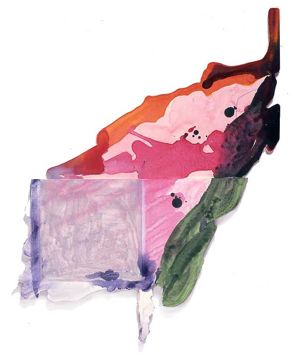To celebrate the New Year and what are now 90 posts for the Teaching with Contemporary Art column here on the Art21 blog, I popped a bottle of champagne, played a quick tune on my kazoo, and then began thinking about what’s next (I was never much for long celebrations, and hey, it was a reeeally quiet New Years Eve). Since this is the first Teaching with Contemporary Art post of the new year, I wanted to let everyone in on some plans for the near future, as well as solicit some ideas for future columns…
First off, I am happy to say that this month the column will feature an interview with Abbe Futterman, an extraordinary science teacher from The Earth School in New York City who not only graduated from Pratt Institute, but also finds innovative ways to incorporate learning science through art. This interview will be part of the current Flash Points theme: How does art respond to and redefine the natural world?
Secondly, I am excited to report that I will be interviewing Tod Lippy, editor of Esopus magazine (which is not really a magazine; it’s more of an artwork in the shape and schedule of a periodical) for a post exploring ways that teachers use art periodicals in their classrooms.
Third, Kidspace at Mass MoCA in North Adams, Massachusetts, will celebrate their 10th anniversary in March and I am pleased to be attending the festivities in order to report on the work Kidspace has done in the last decade, as well ask questions about the future of museums educating children about, and with, contemporary art.
While this is just a taste of some things in the works, I encourage you to comment on this post to suggest other ideas for the column, other people you’d love to see interviewed, and future events you’d love to see “covered,” as only Teaching with Contemporary Art can. I’ll even bring along the kazoo.
Cheers! Happy New Year! And thank you…
“….in the making and the critiquing there is all of life and there has to be all of life because if you don’t have all of life, then how can you make anything that really has importance?”
– Richard Tuttle




